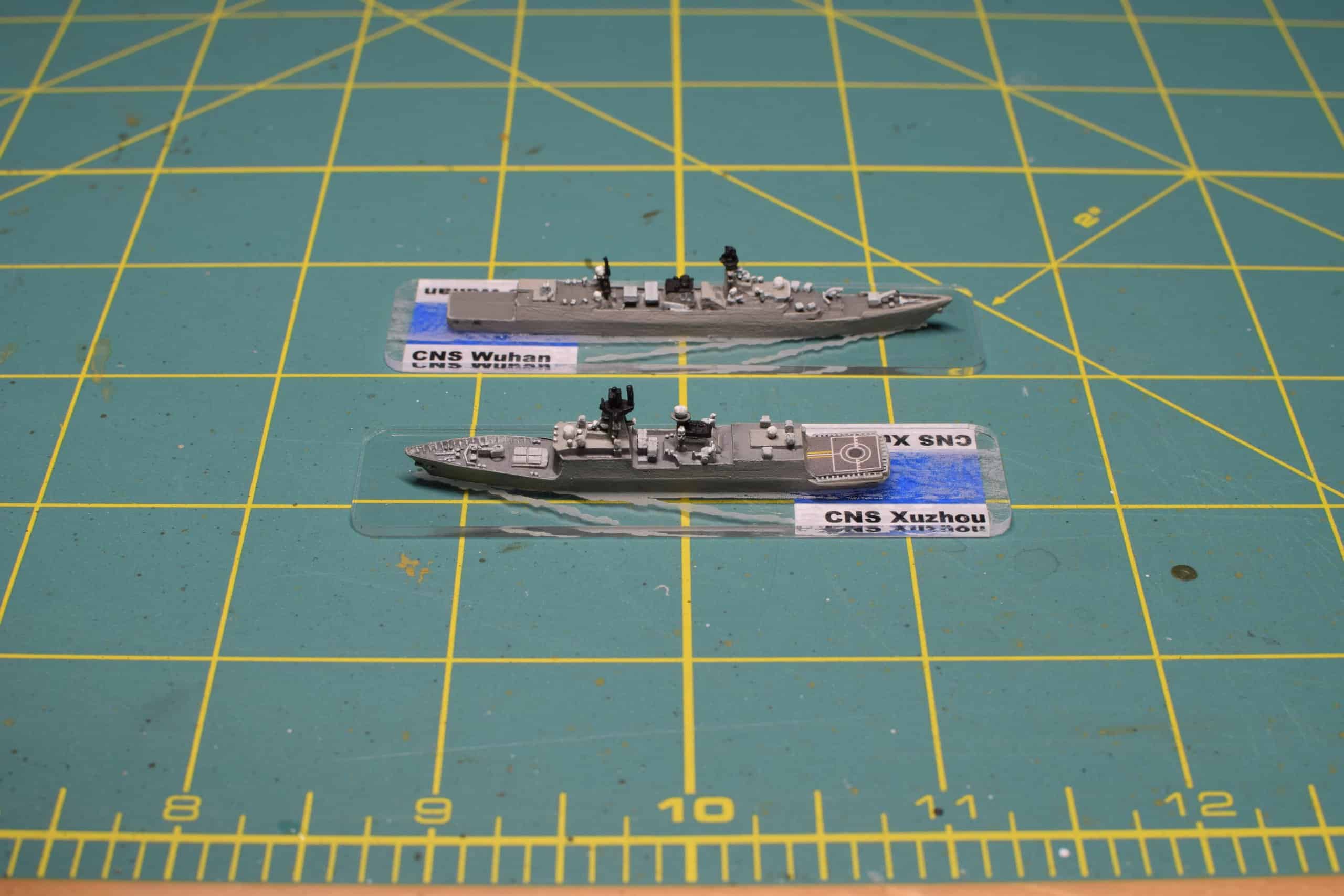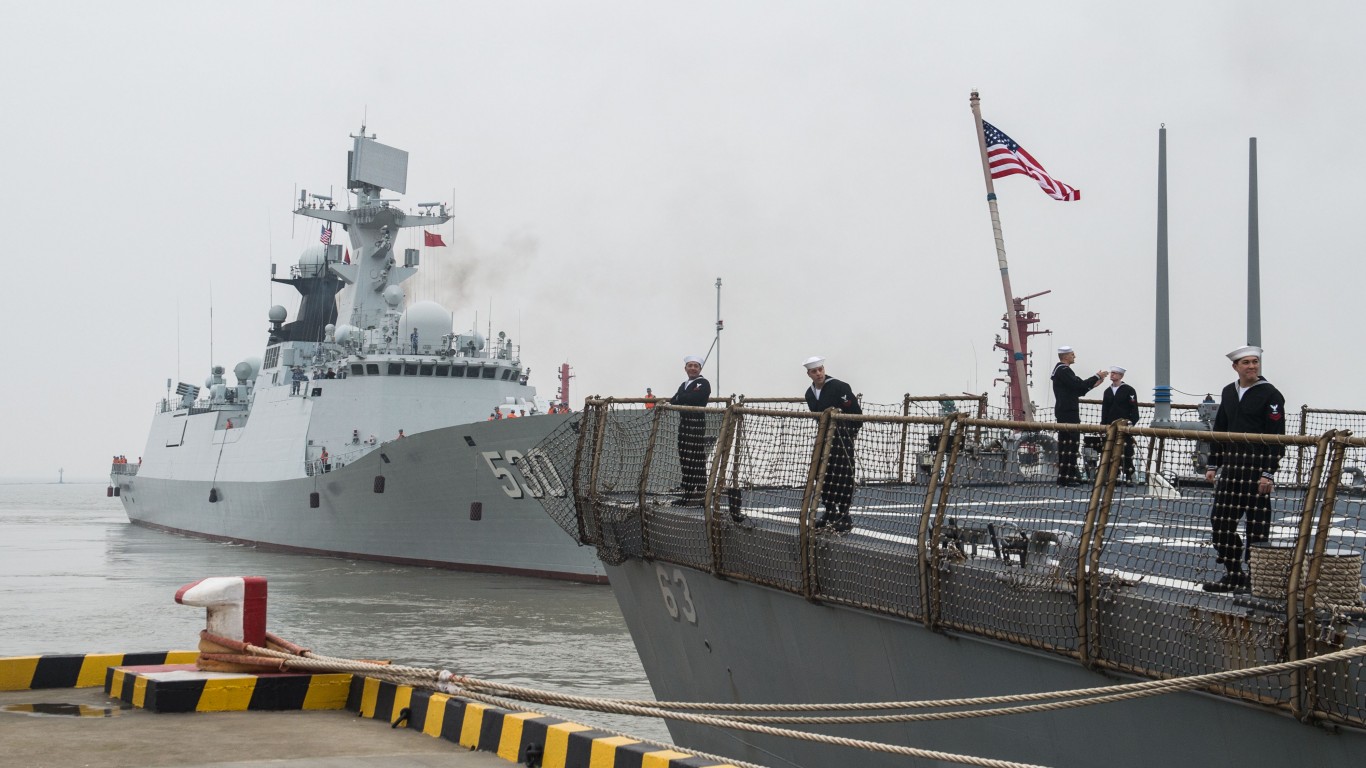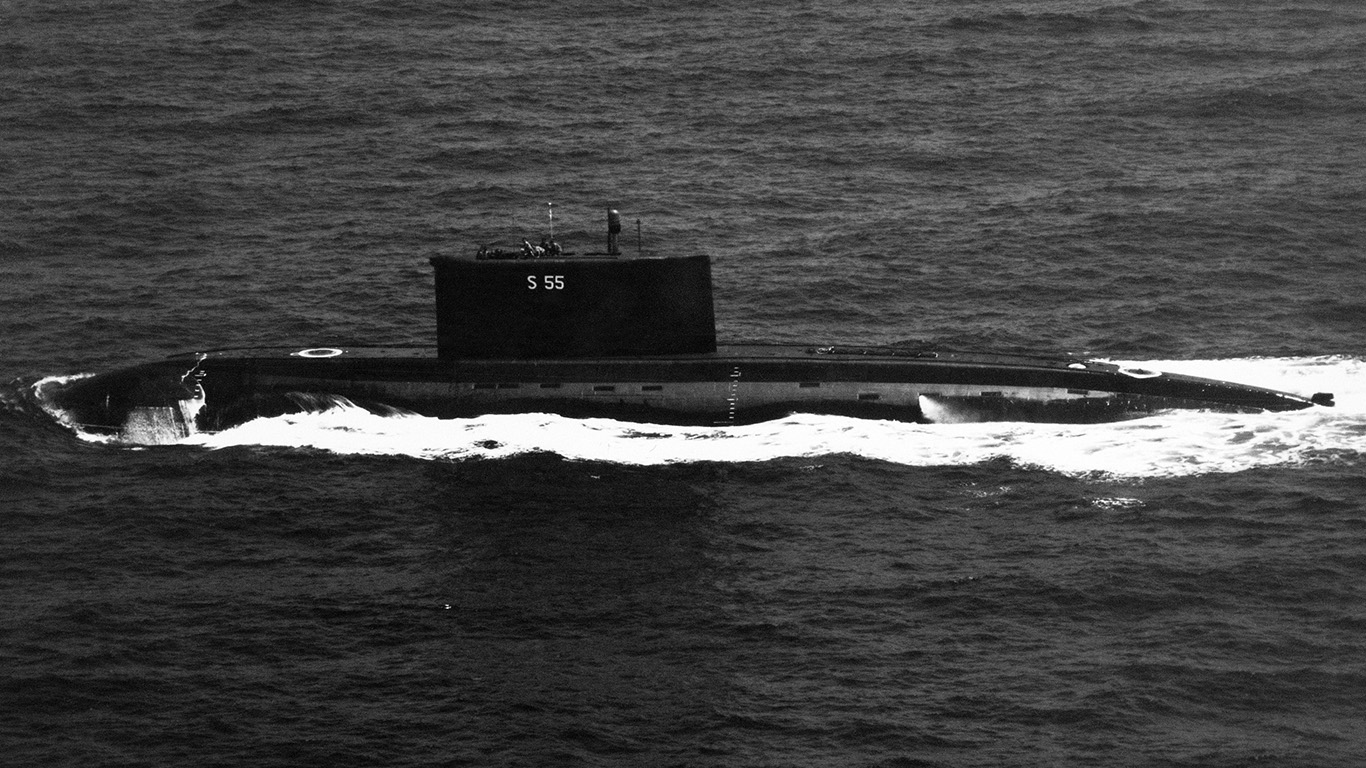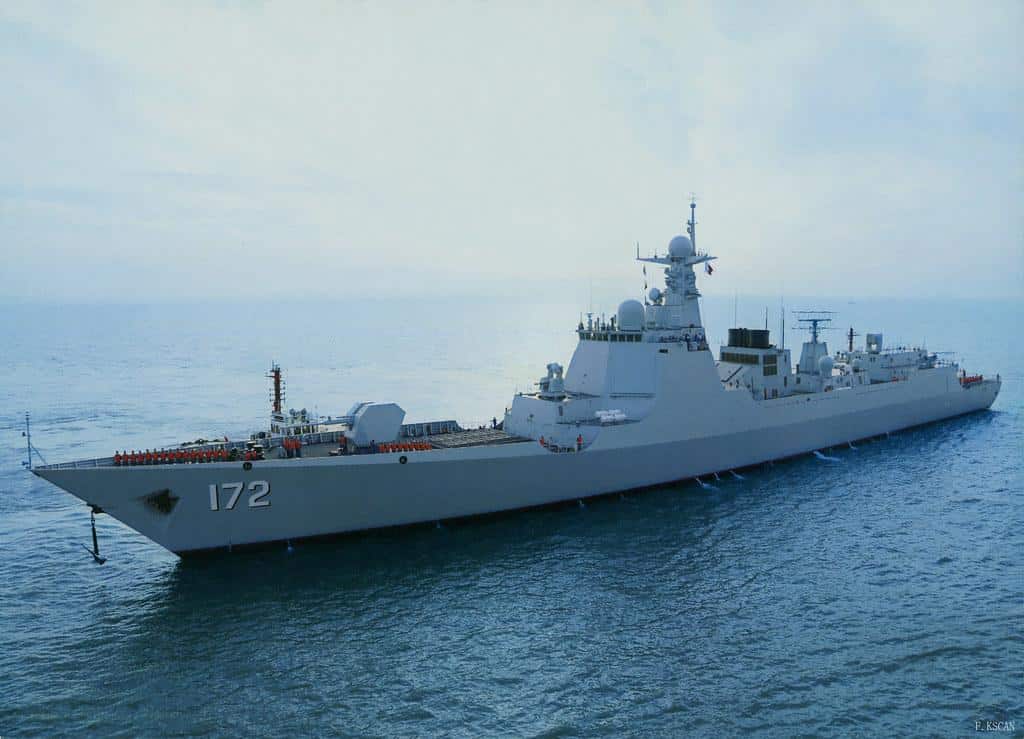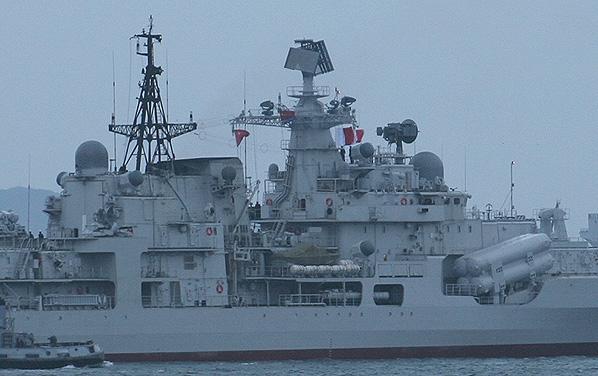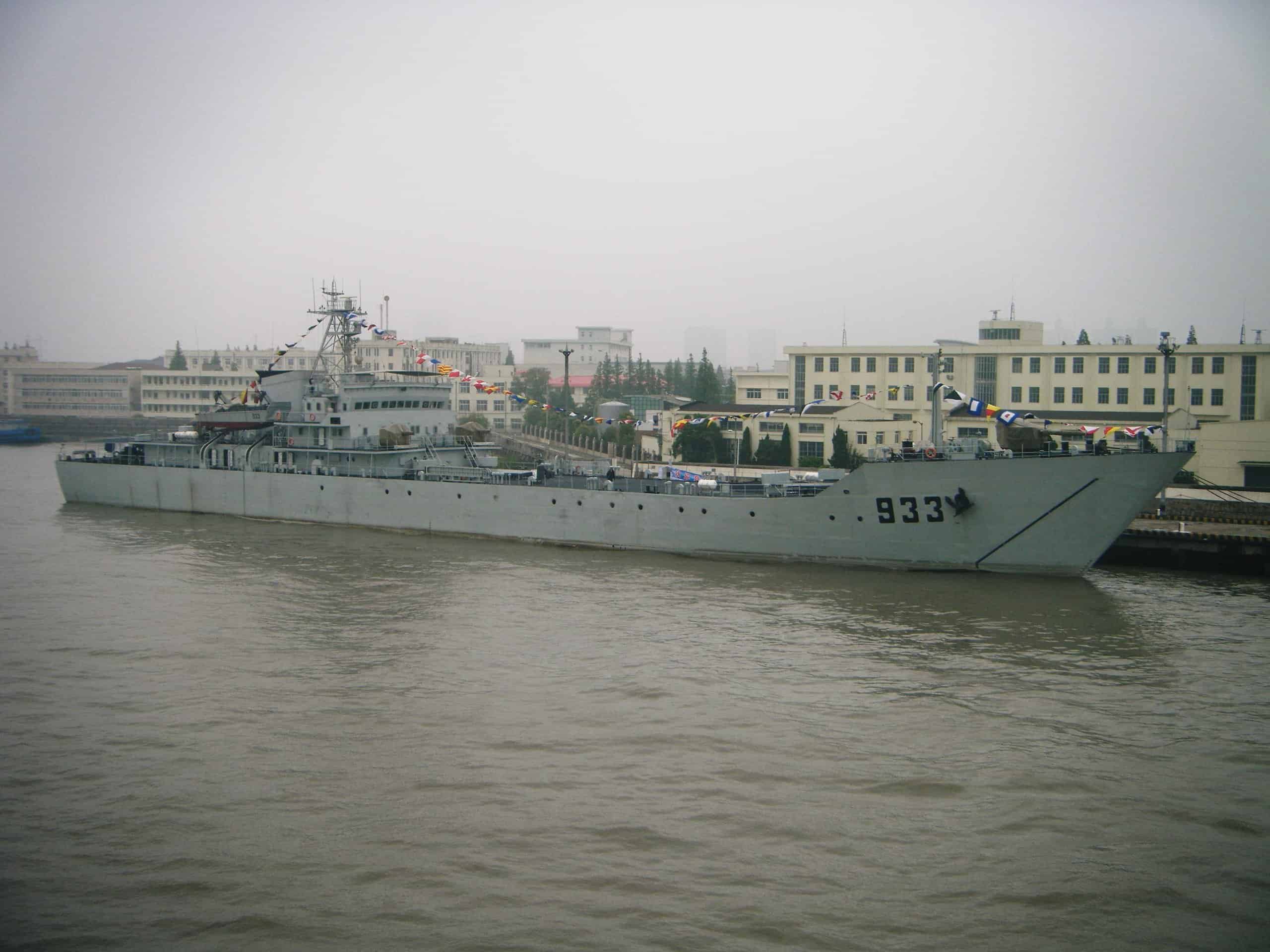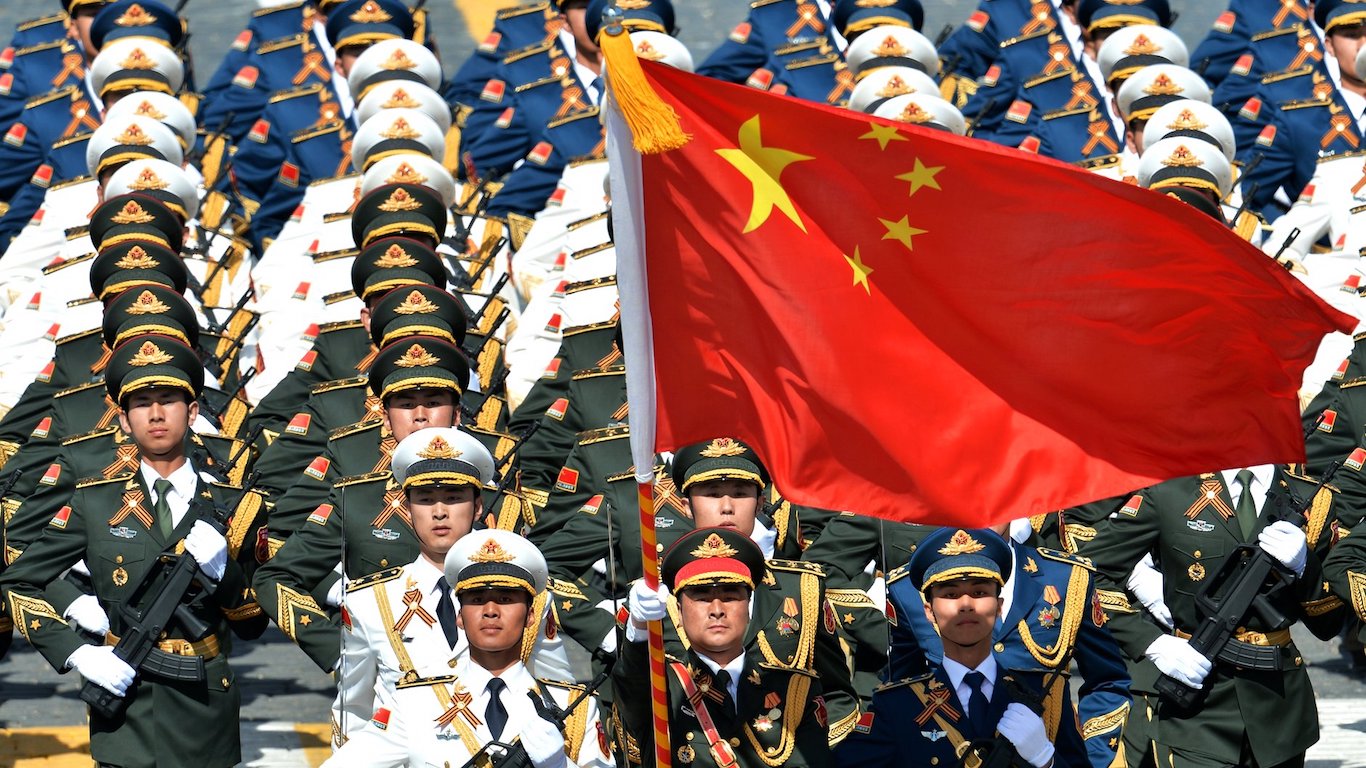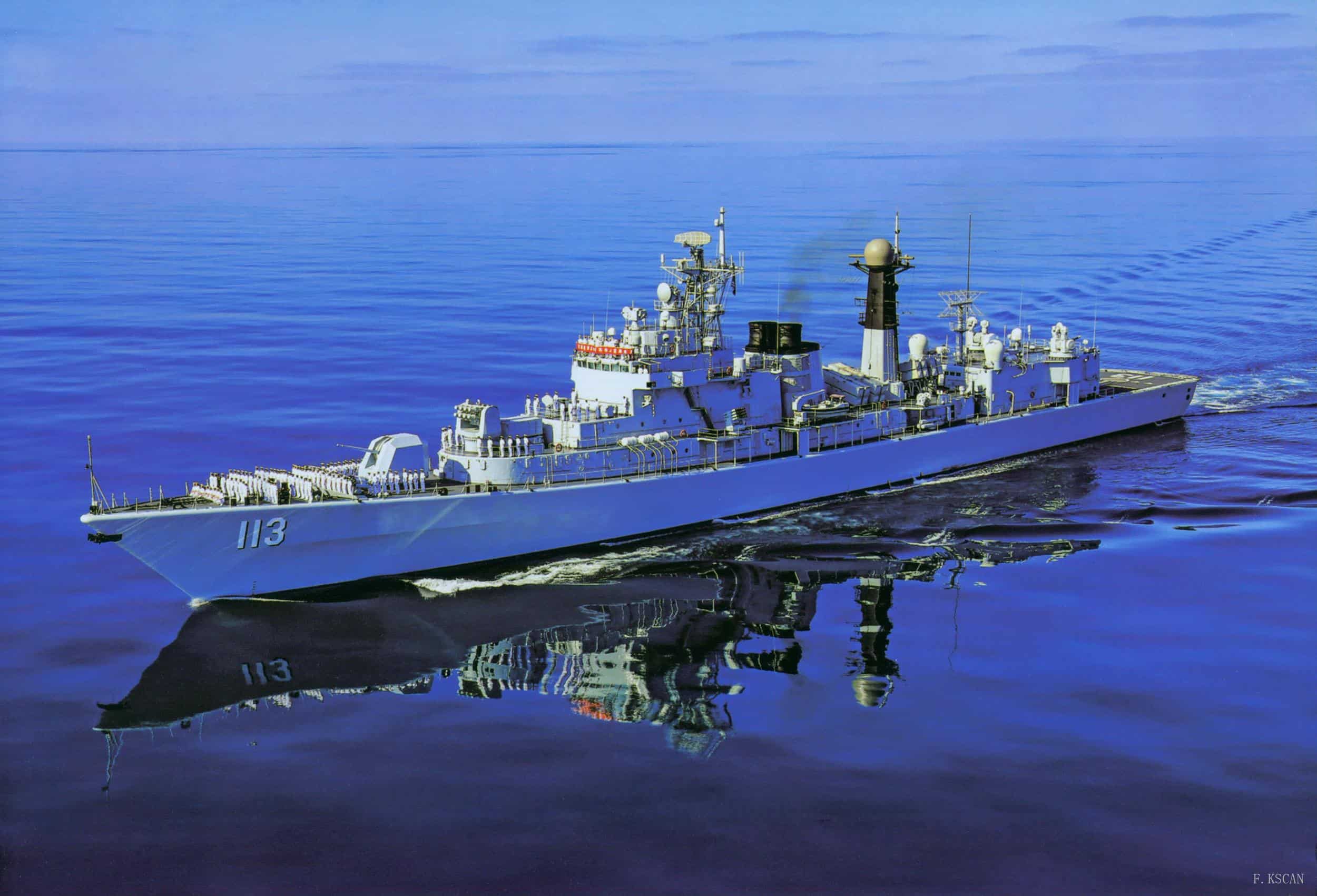
The recent NATO summit at the White House served to address the ongoing conflict in Eastern Europe as Russia and Ukraine are still in a hot conflict. The summit also addressed the fact that China and Belarus were conducting military drills near the Polish border. China has been ascendant in its military power in recent decades, and NATO is concerned that this show of force might be indicative of something greater.
One way that China has grown militarily in recent years is through its Navy. Specifically, expanding its power through the South China Sea and even further, China’s dominance of the region has only risen as its naval fleet and air force have reached incredible heights. (These are seven ways China could attempt to invade Taiwan.)
The newest addition to China’s Navy will be the Fujian aircraft carrier, which is one of the biggest ships in the world. Although it is still in the sea trials phase, it is looking to join the rest of the fleet soon. Unlike the other aircraft carriers in China’s Navy, the Fujian is made entirely from Chinese engineering and is looking to be the crown jewel of the fleet.
Here, 24/7 Wall St. is taking a closer look at China’s naval might. To identify the ships and submarines of the People’s Liberation Army, 24/7 Wall St. referenced the military data site World Directory of Modern Military Warships’ directory of all active ships in China. The ship and submarine classes are ranked alphabetically. Any ships on order were excluded, as are smaller patrol vessels, mine countermeasures, and smaller amphibious assault ships. We included supplemental information regarding the type of vessel and examples of it.
With a median hull age of just over 14 years, China’s Navy controls a military force consisting of relatively newer vessels. According to WDMMW, the country has produced the equivalent of a Royal Navy fleet each year, all toward its goal of overtaking the U.S. in naval power.
Each of these vessels serve to expand China’s naval power throughout the region, and then even further. (These are the nations where China is investing the most money.)
Here is a closer look at the warships and submarines in China’s Navy:
Why Are We Covering This?
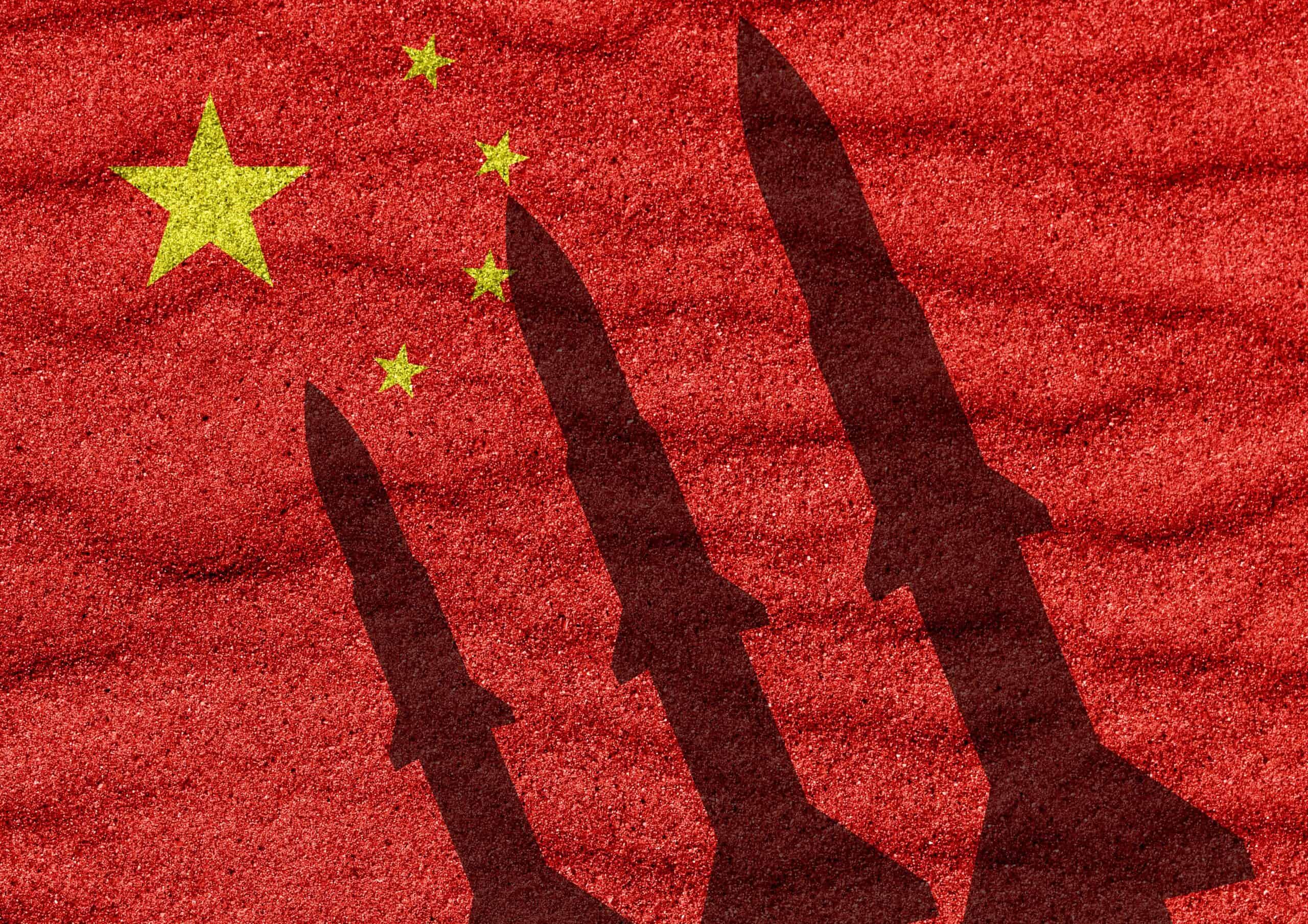
Understanding China’s Navy gives context to their modernization effort and geopolitical standing. Knowing which specific warships and submarines China employs also helps to understand their operational capacity when using these vessels.
Fujian-class
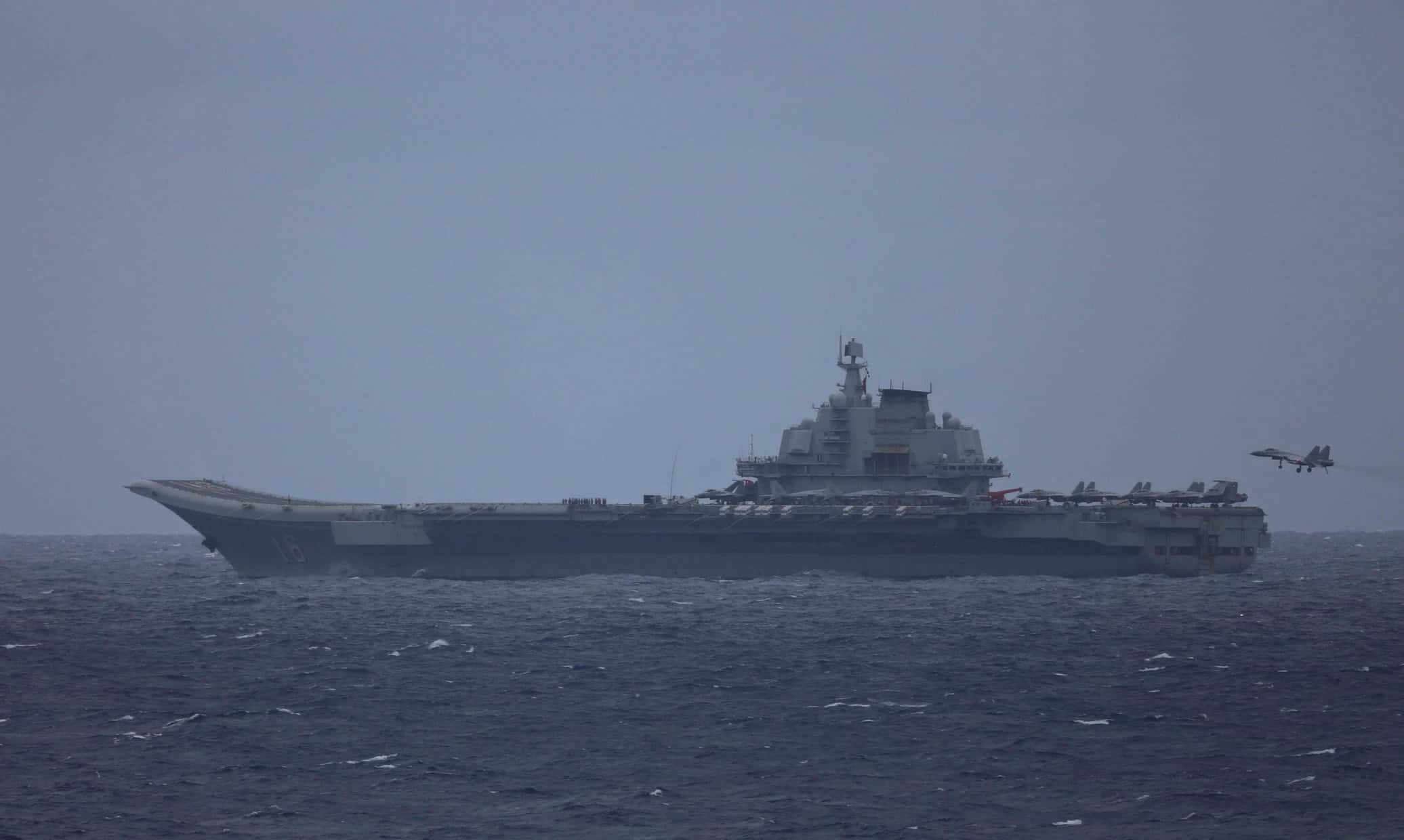
- Type: Aircraft carrier
- Examples: Fujian
Han-class
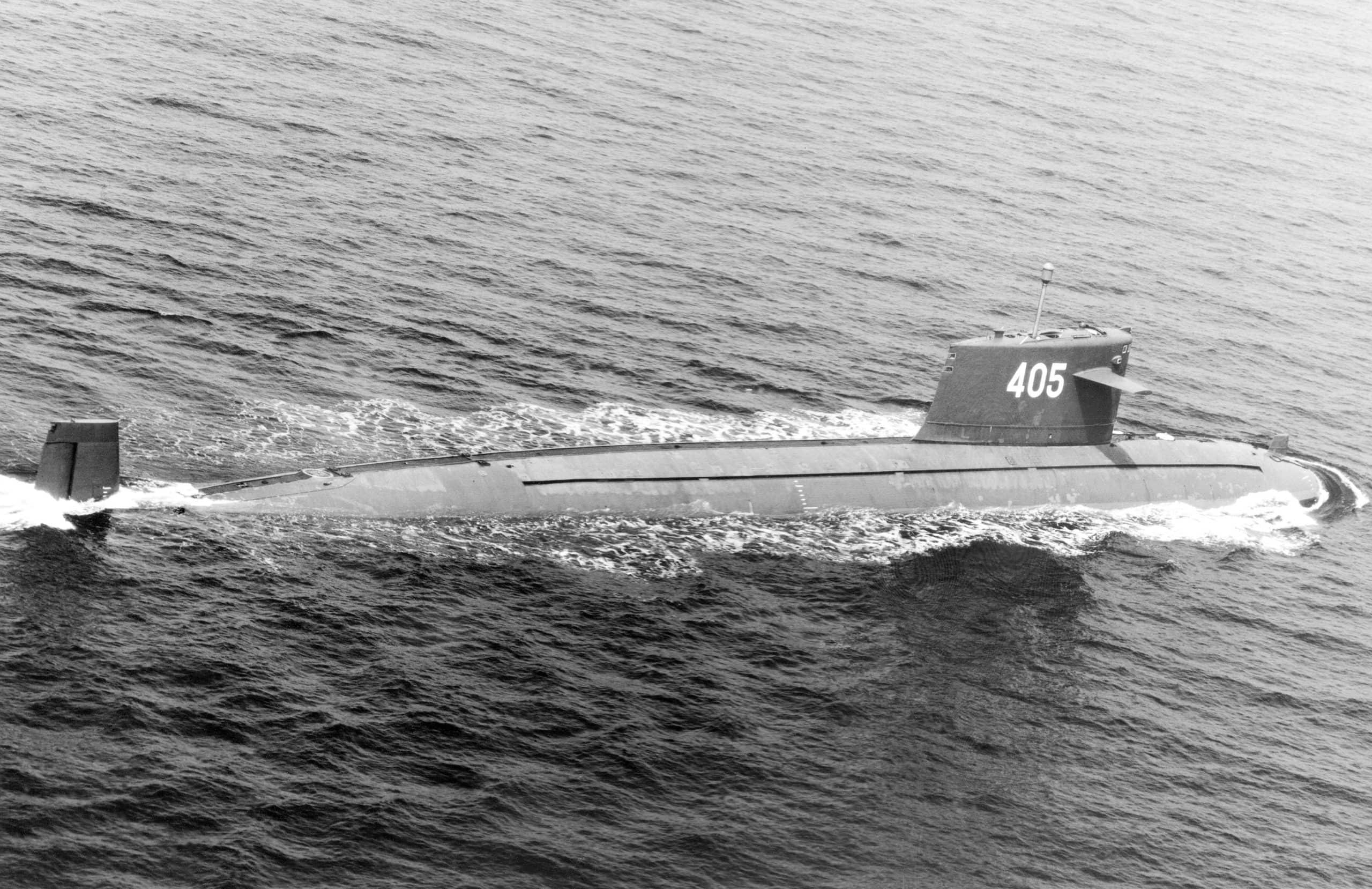
- Type: Attack submarine
- Examples: Long March 3
Jiangdao-class

- Type: Corvette
- Examples: Datong, Shangrao, Qinzhou
Jianghu II class

- Type: Frigate
- Examples: Shaoguan
Jianghu V class
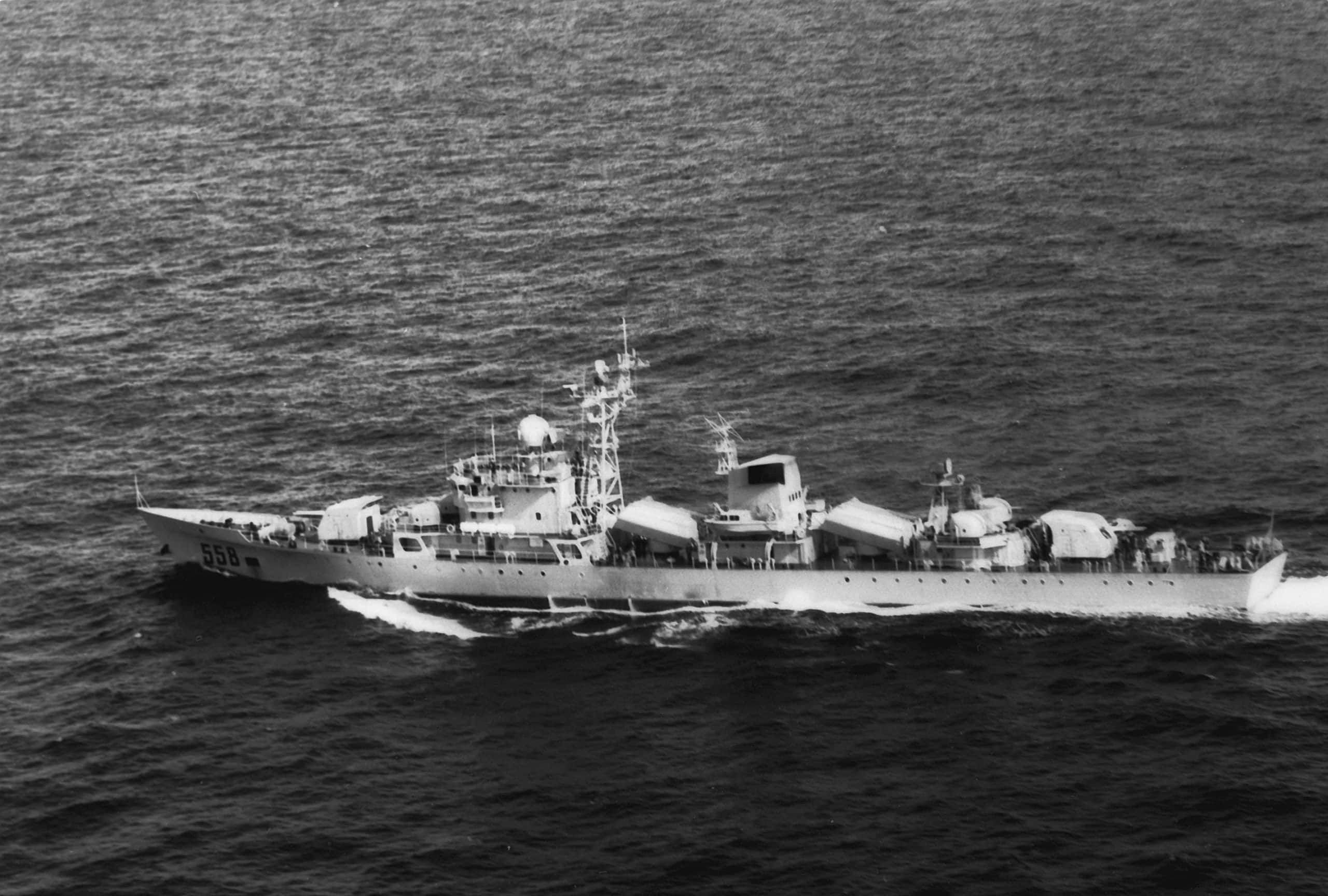
- Type: Frigate
- Examples: Beihai, Foshan
Jiangkai I class
- Type: Frigate
- Examples: Ma’anshan, Wenzhou
Jiangkai II class
- Type: Frigate
- Examples: Xuzhou, Zhoushan
Jiangwei II class
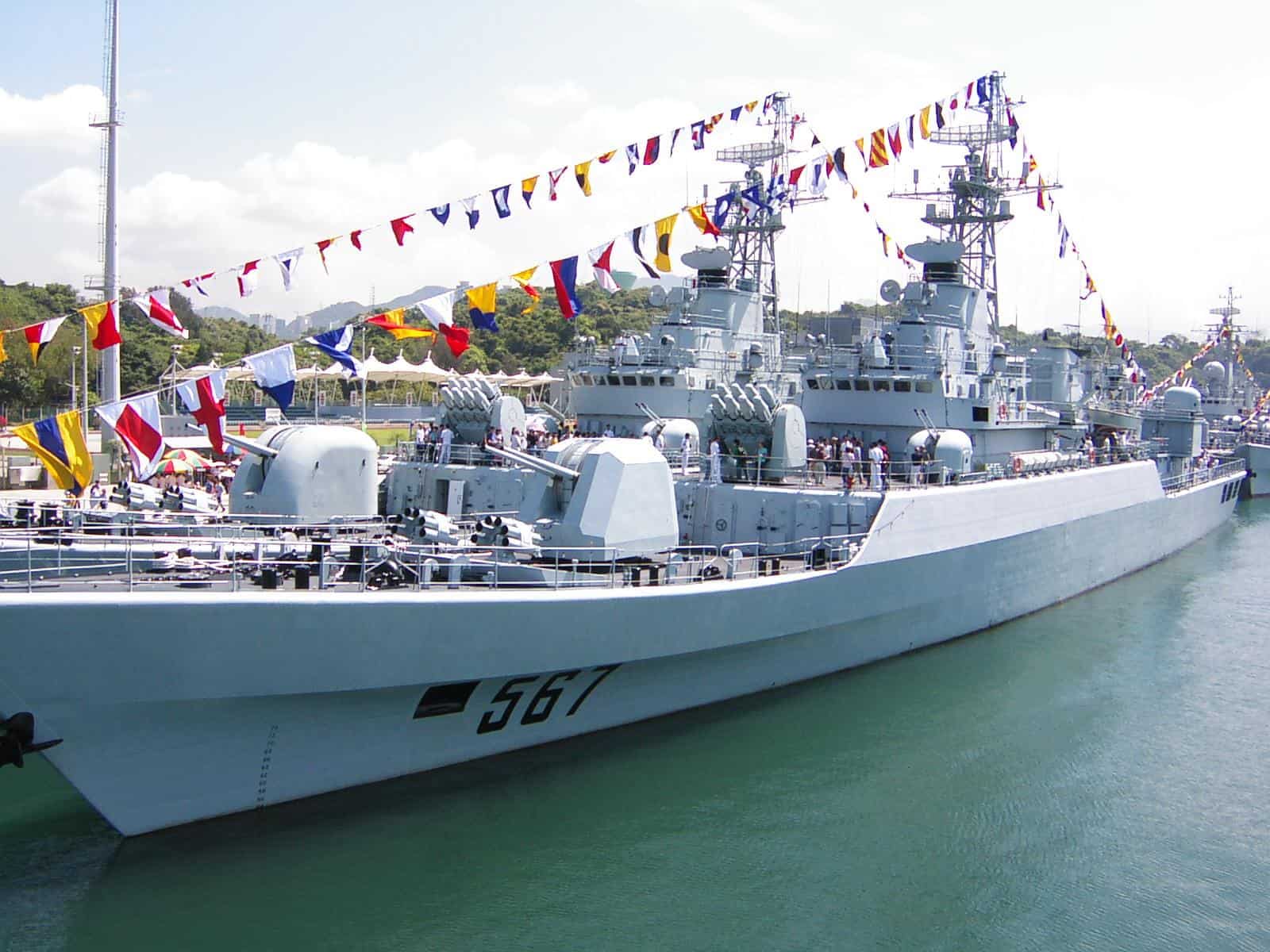
- Type: Frigate
- Examples: Yichang, Huludao
Jin-class
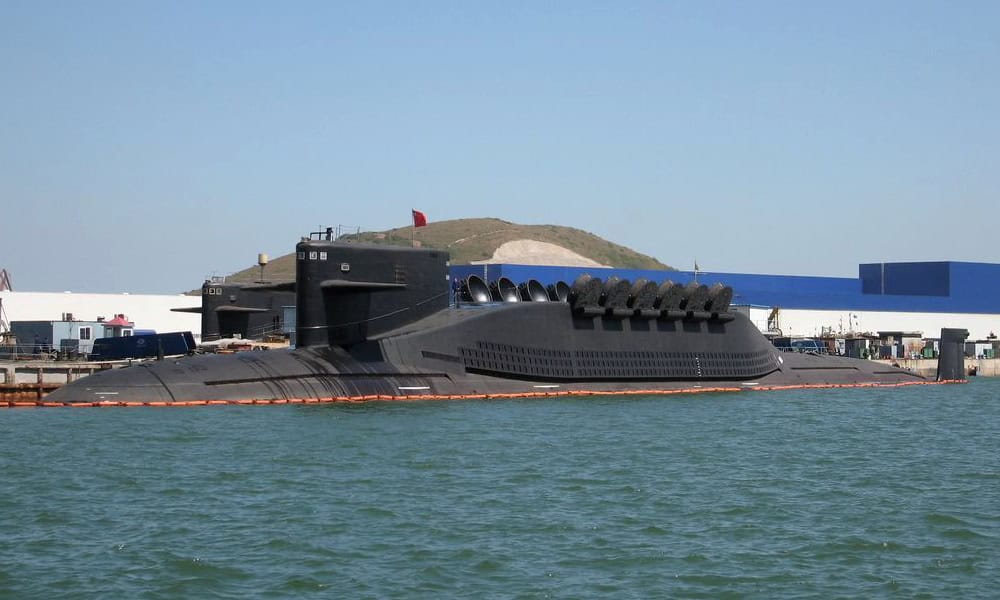
- Type: Ballistic missile submarine
- Examples: Long March 11
Kilo-class
- Type: Attack submarine
- Examples: Great Wall 369
Kuznetsov-class
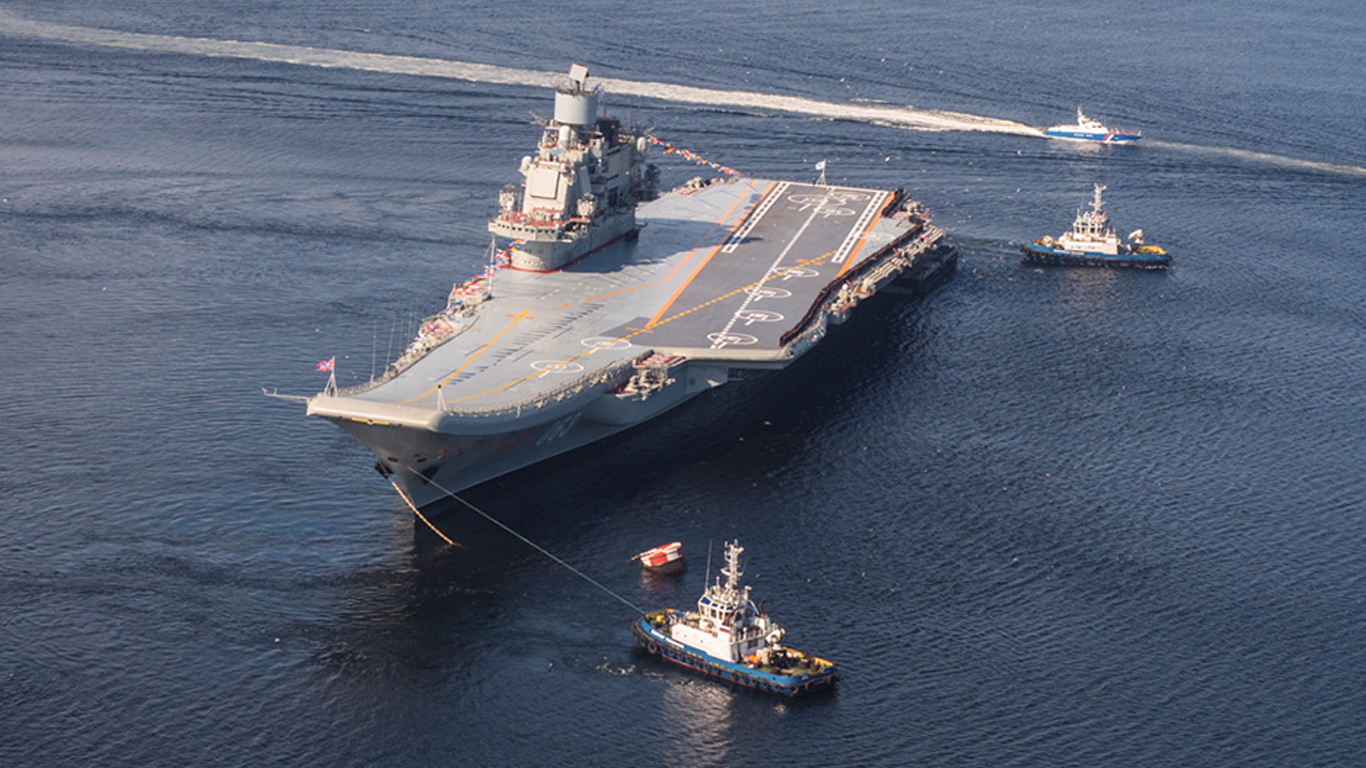
- Type: Aircraft carrier
- Examples: Liaoning, Shandong
Luhai-class
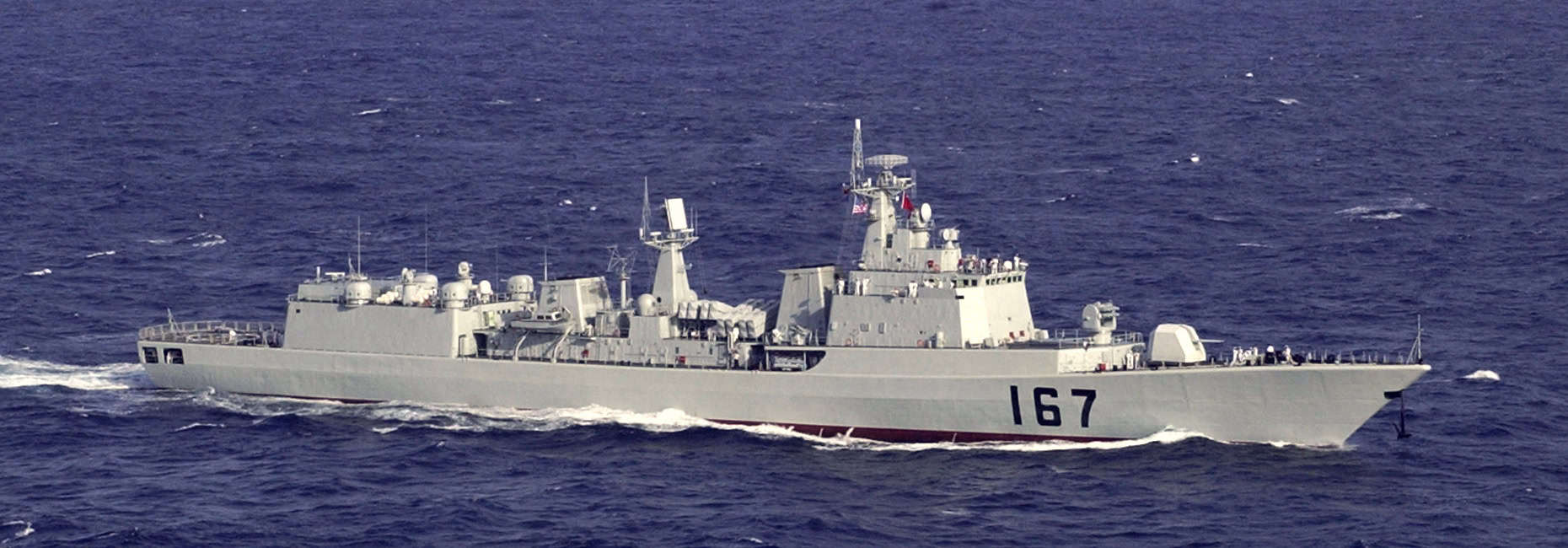
- Type: Destroyer
- Examples: Shenzhen
Luhu-class

- Type: Destroyer
- Examples: Harbin, Qingdao
Luyang I class
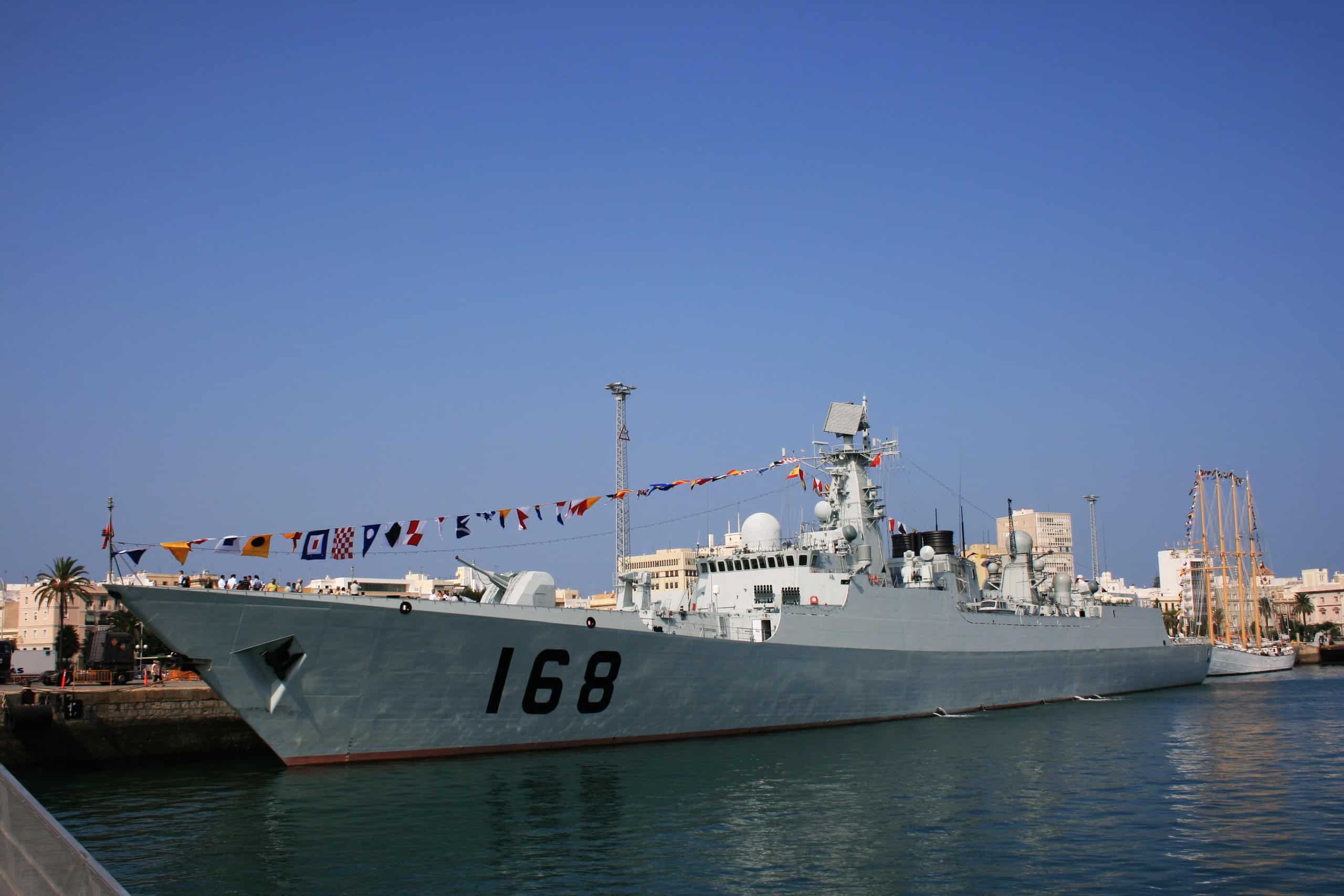
- Type: Destroyer
- Examples: Guangzhou, Wuhan
Luyang II class
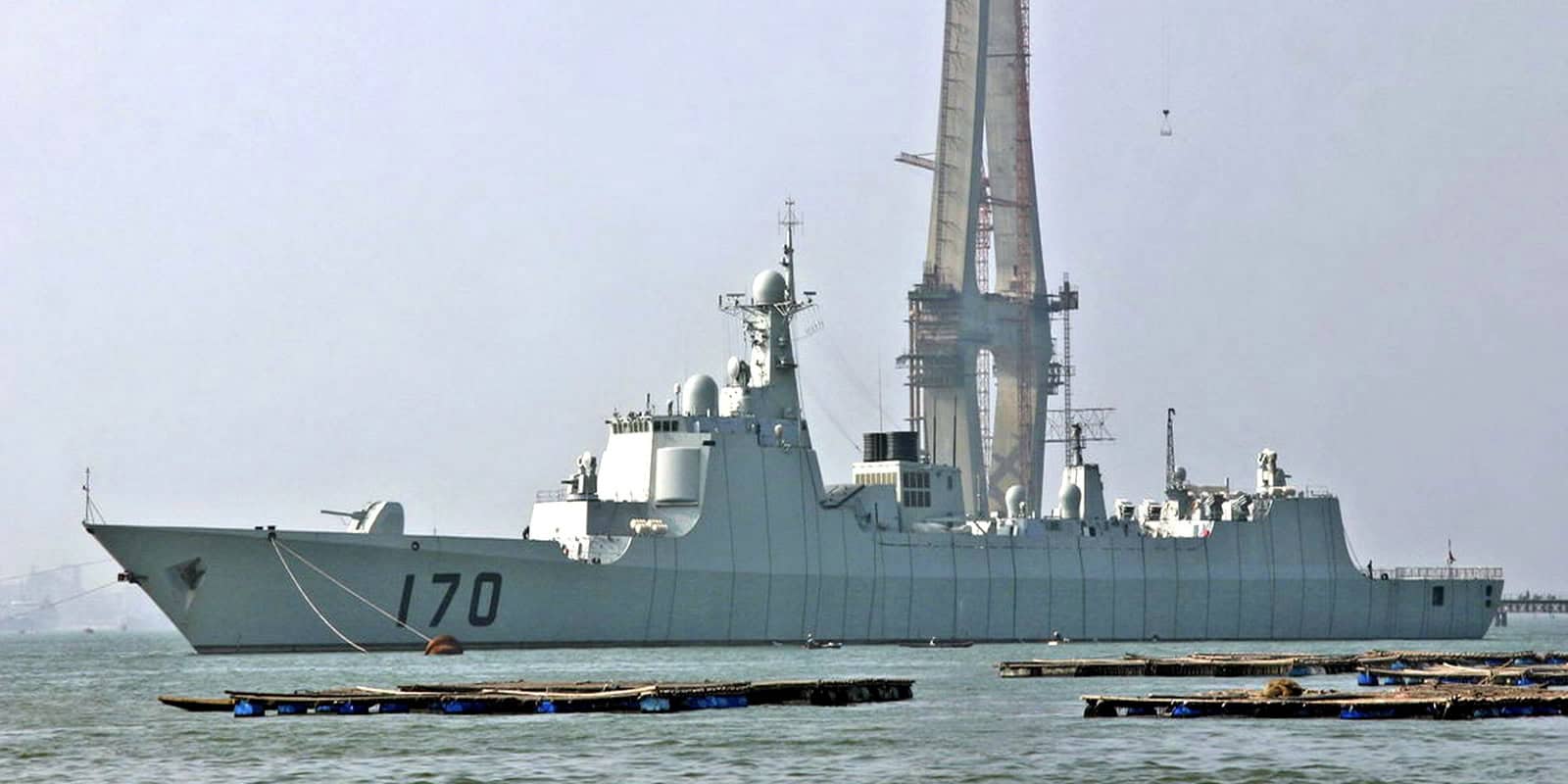
- Type: Destroyer
- Examples: Lanzhou, Haikou
Luyang III class
- Type: Destroyer
- Examples: Guiyang, Nanjing
Luzhou-class
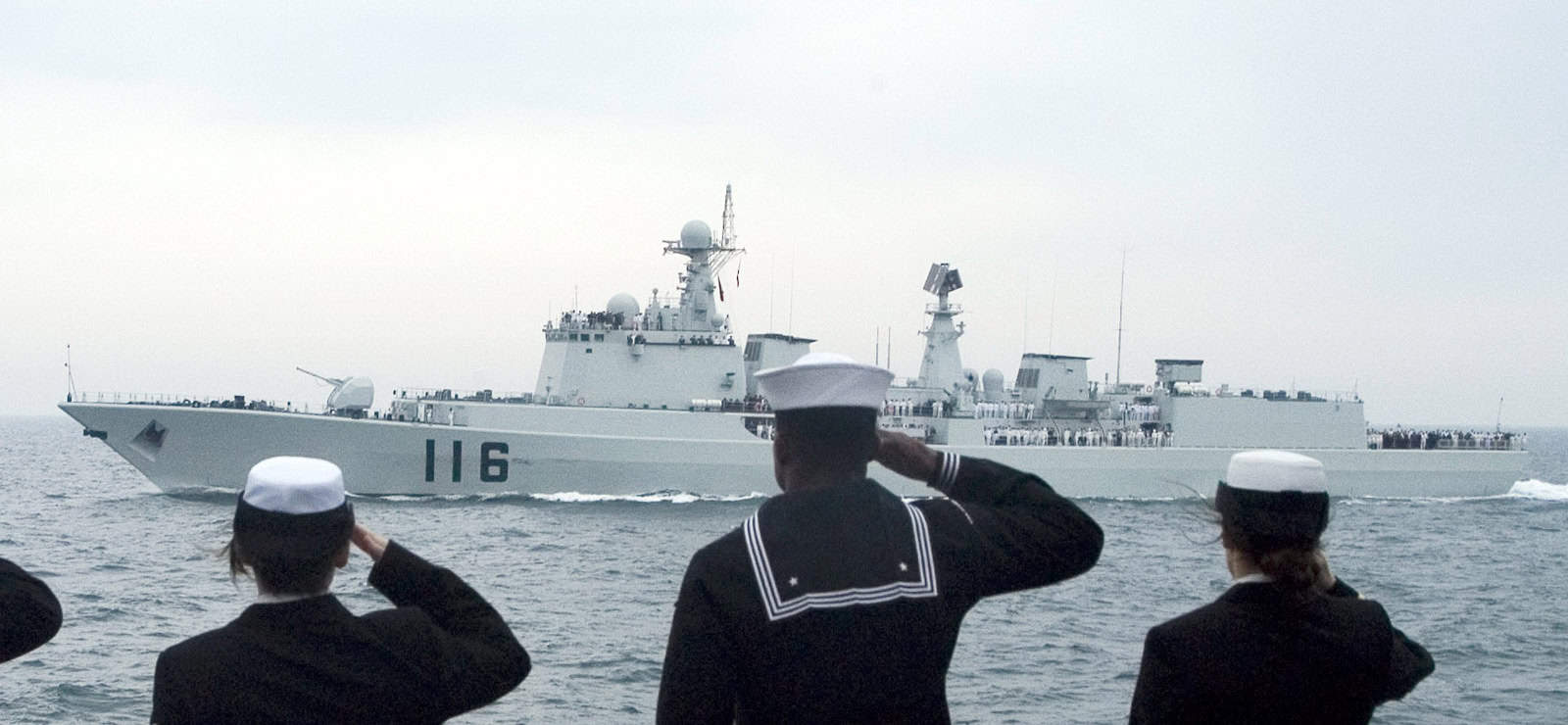
- Type: Destroyer
- Examples: Shenyang, Shijiazhuang
Ming-class
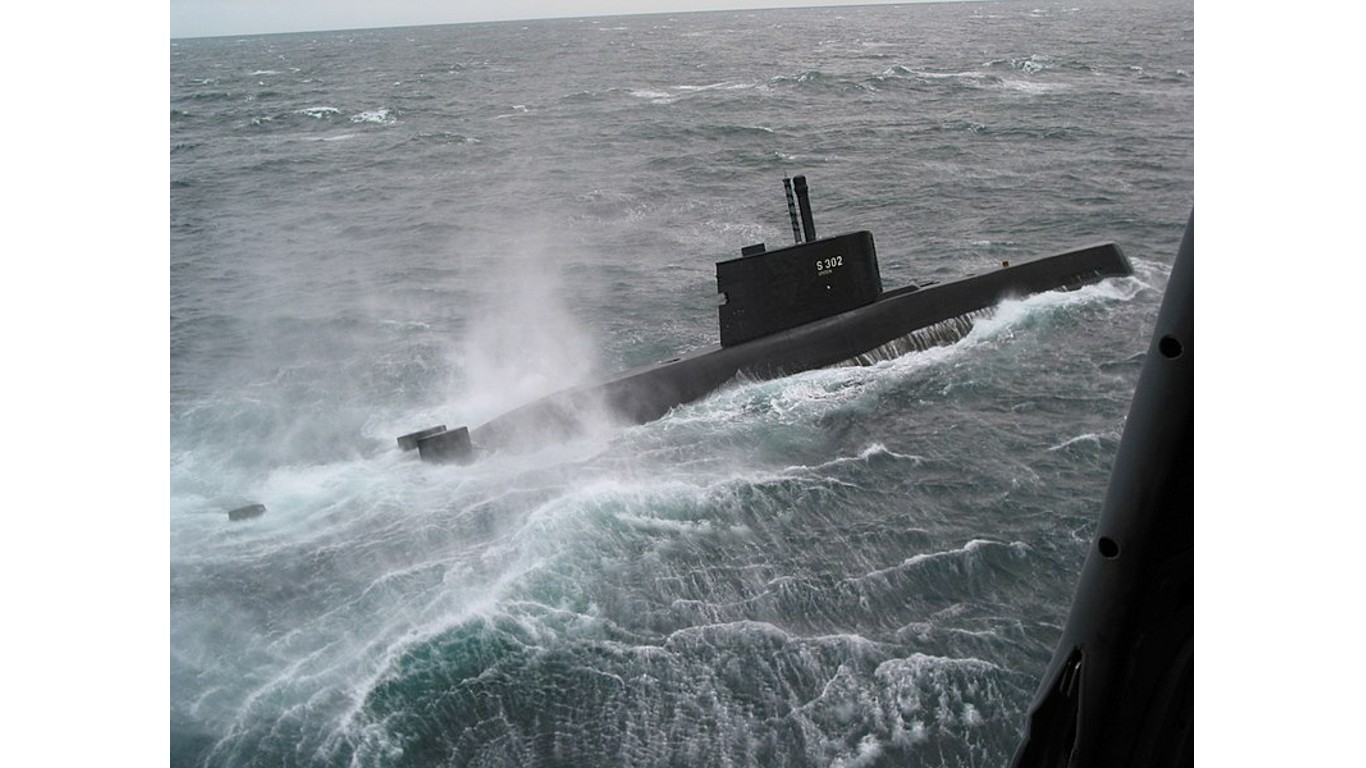
- Type: Attack submarine
- Examples: Great Wall 305
Qing-class

- Type: Ballistic missile submarine
- Examples: Expedition 201
Shang-class
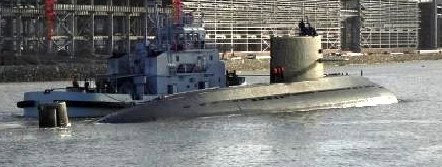
- Type: Nuclear attack submarine
- Examples: Long March 7
Song-class
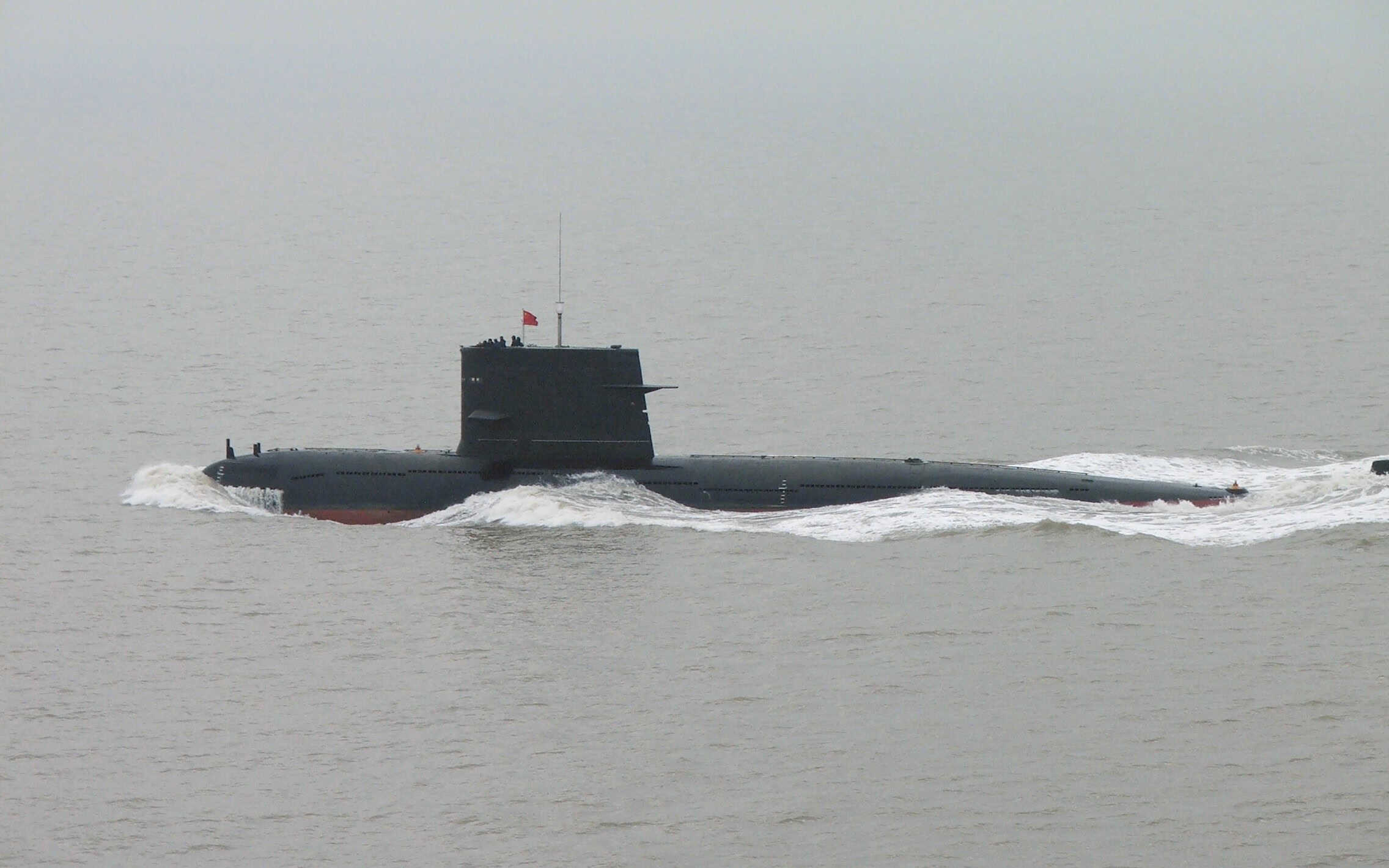
- Type: Attack submarine
- Examples: Great Wall 320
Sovremenny-class
- Type: Destroyer
- Examples: Fuzhou, Taizhou
Yuan-class
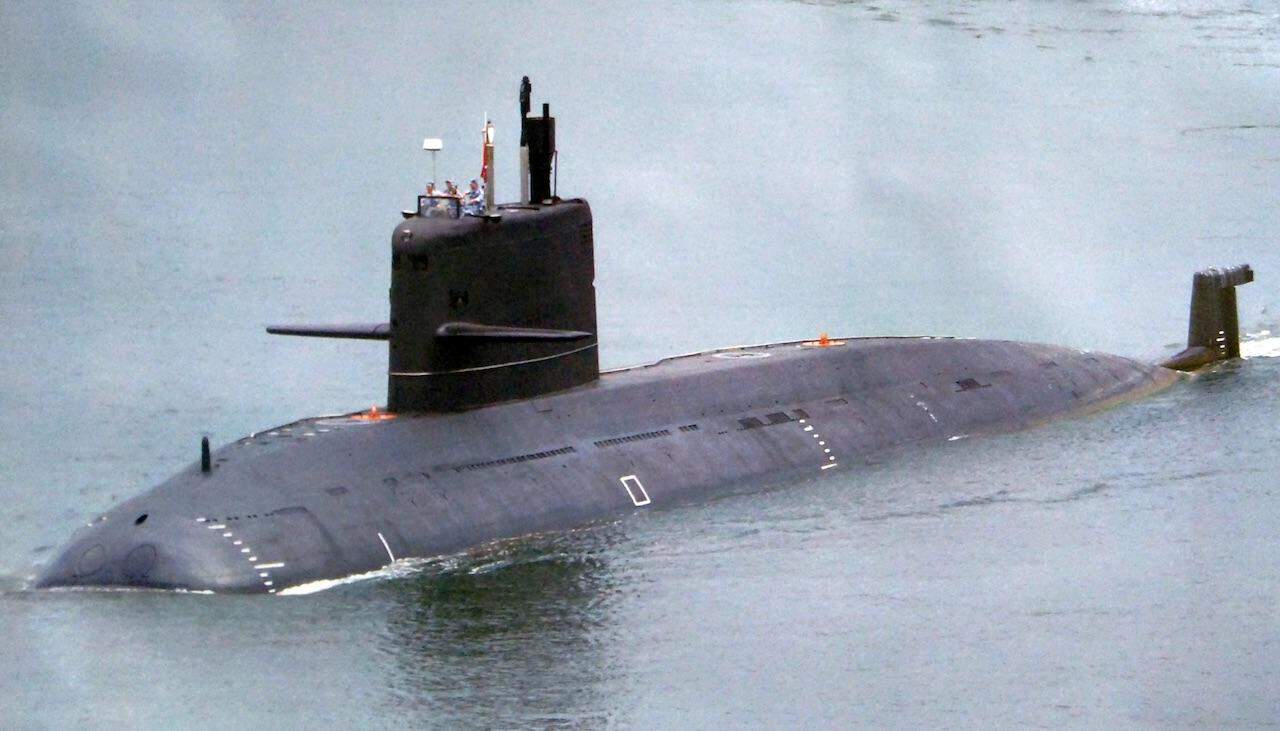
- Type: Attack submarine
- Examples: Great Wall 330
Yushen-class
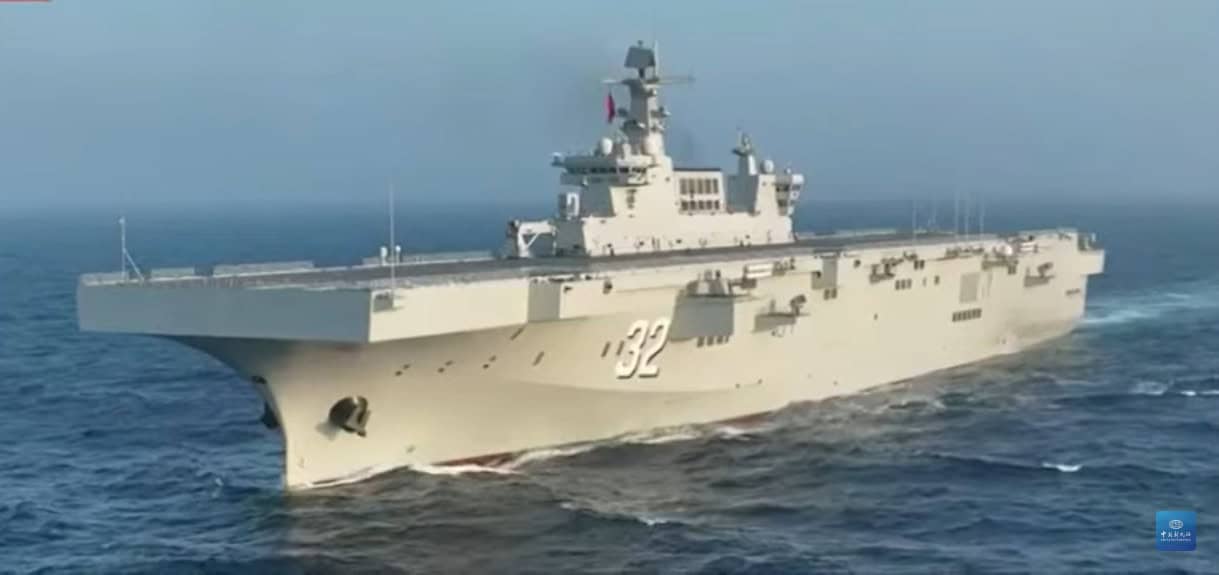
- Type: Amphibious assault ship
- Examples: Hainan, Anhui
Yuting II class
- Type: Amphibious assault ship
- Examples: Haiyang Shan, Yandang Shan
Yuzhao-class
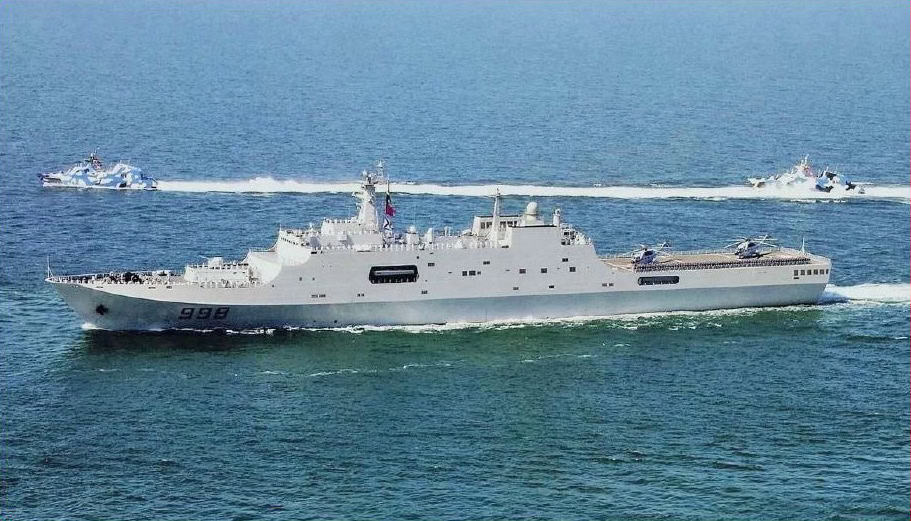
- Type: Amphibious assault ship
- Examples: Kunlun Shan, Jinggang Shan
Get Ready To Retire (Sponsored)
Start by taking a quick retirement quiz from SmartAsset that will match you with up to 3 financial advisors that serve your area and beyond in 5 minutes, or less.
Each advisor has been vetted by SmartAsset and is held to a fiduciary standard to act in your best interests.
Here’s how it works:
1. Answer SmartAsset advisor match quiz
2. Review your pre-screened matches at your leisure. Check out the advisors’ profiles.
3. Speak with advisors at no cost to you. Have an introductory call on the phone or introduction in person and choose whom to work with in the future
Get started right here.
Thank you for reading! Have some feedback for us?
Contact the 24/7 Wall St. editorial team.
